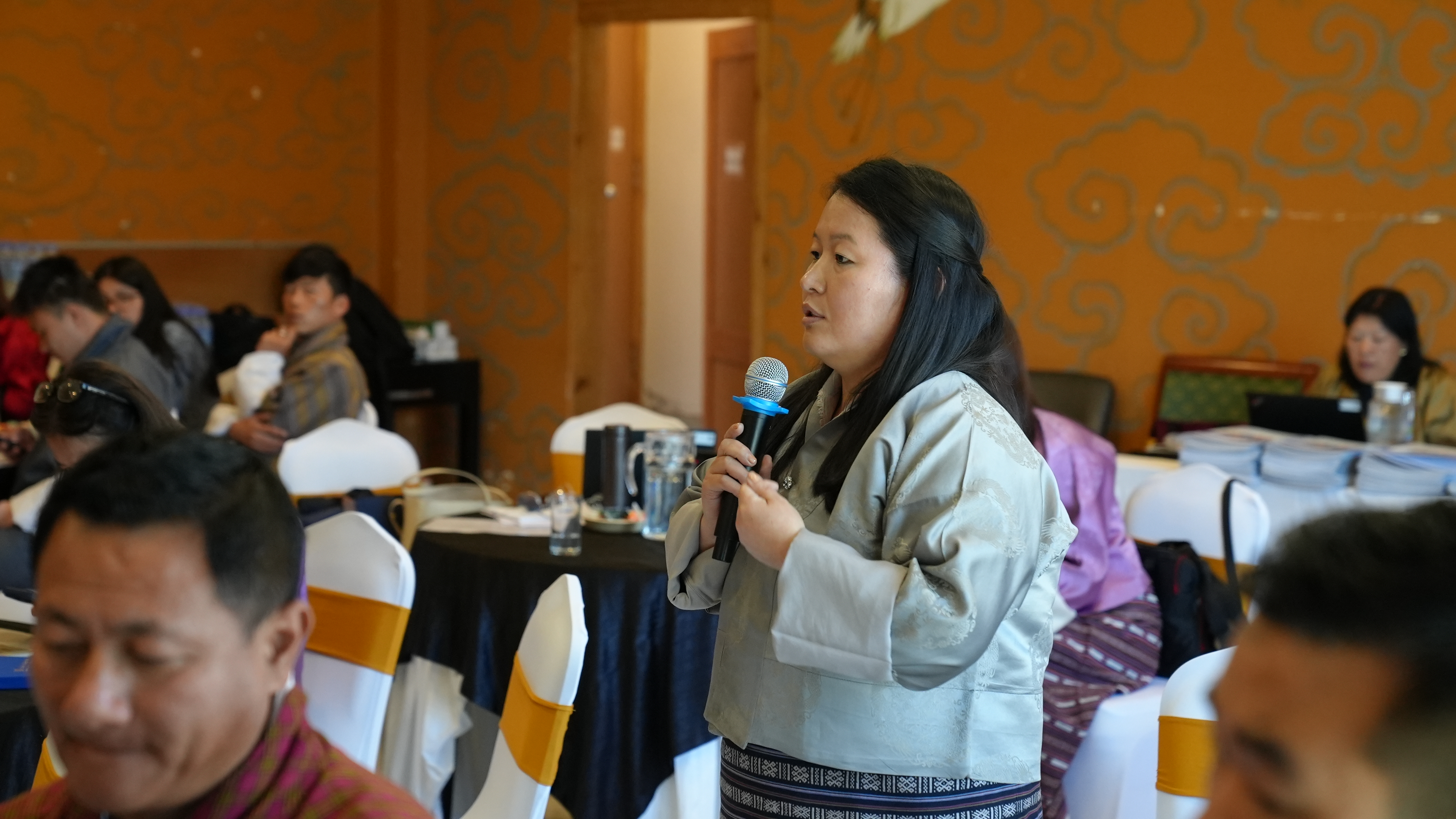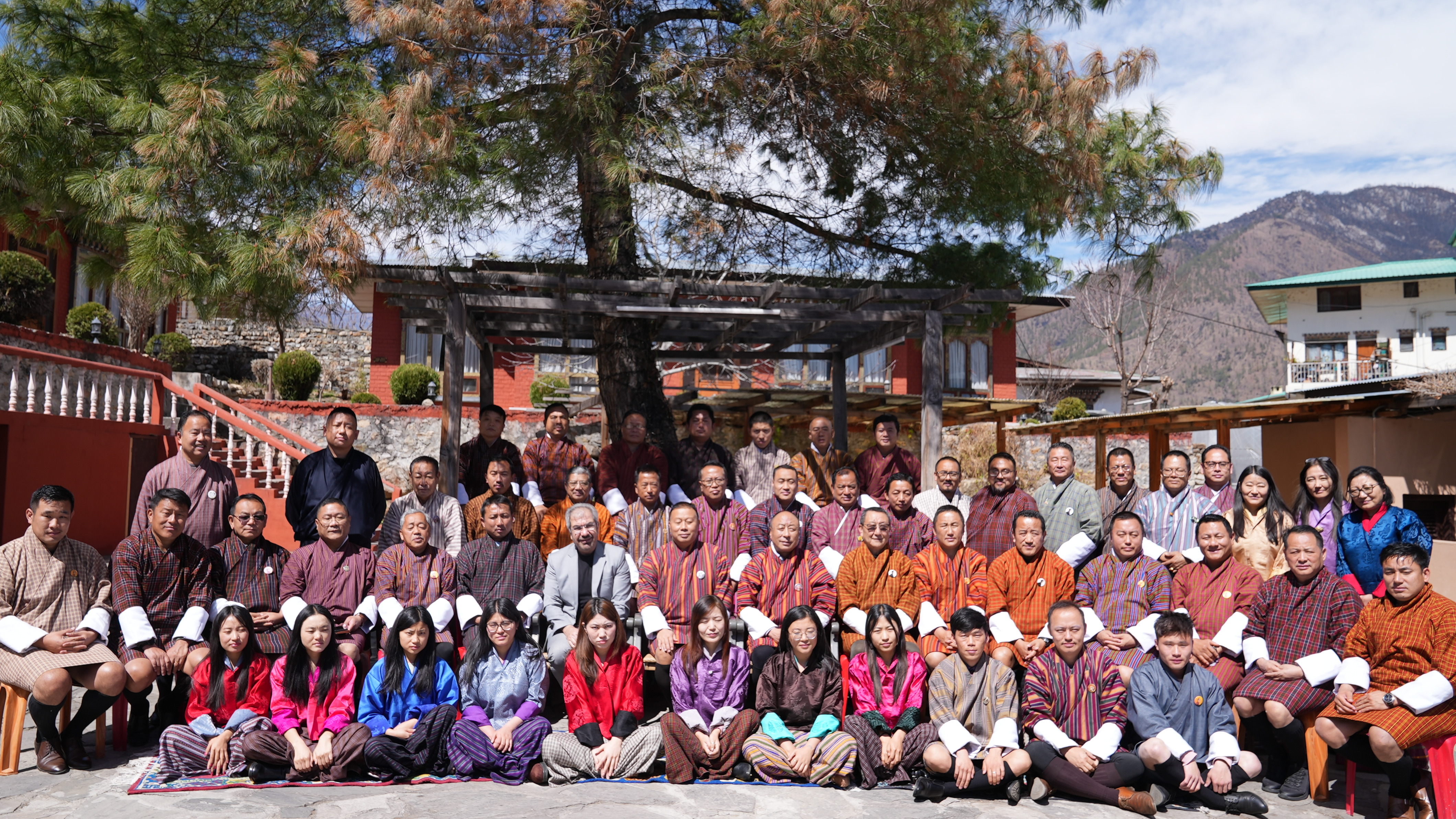Towards a dynamic and fit-for-purpose parliament in times of polycrisis
March 7, 2024

Members of the National Assembly
The newly elected members of the National Assembly, the Lower House of the Parliament of Bhutan, attended a three-day orientation programme (4th to 6th March) on parliamentary duties and global trends.
Jointly organized by the National Assembly Secretariat and UNDP in partnership with UNICEF and UNFPA, the programme was aimed at equipping the parliamentarians with insights crucial for navigating the complex challenges of today’s fast-evolving world.
Tshering Lhamo, Economist with UNDP Indonesia led an insightful discussion on global and regional mega trends shaping the world and their implication for Bhutan. From demographic shifts to technological advancements, economic transformations, and environmental challenges, the session unraveled how these trends are reshaping societies and economies worldwide, and what they mean for Bhutan's sustainable development journey.
Delving into the role of Parliament in monitoring progress towards achievement of the Sustainable Development Goals (SDGs) and national goals, Doina Ghimici, Governance Expert from UNDP Bangkok Regional Hub underscored the critical role of the members of Parliament in advancing the SDGs. She emphasized the importance of people-centric policies and legislations to ensure that no one is left behind.

Lungten Dorji, Speaker of the National Assembly
Dr. Mohammad Abdur Razzaque, an Economist from Bangladesh spoke about the opportunities and challenges that LDC graduation present for Bhutan. The session explored potential impact of LDC graduation, both positive and negative, on Bhutan’s economy, trade, and development.
Strategic foresight skills are key to helping decision-makers become more agile, adaptive, and forward-looking in their approach to decision making. Tshering Choden, Head of Exploration, Accelerator Lab, UNDP introduced the Members of Parliament to the various tools and concepts related to Anticipatory Governance and Foresight.

Mohammad Younus, Resident Representative, UNDP
UN Resident Coordinator Karla Robin Hershey shed light on the importance of multilateralism in the work of the parliament, particularly in addressing global challenges like climate change, terrorism, and pandemics.
Ambassador of the Republic of Türkiye to Bhutan, Firat Sunel, shed light on International Laws and Law of Treaties. The session also covered ratification of conventions, negotiation processes and reservations.
The session on gender equality looked at the role of Parliament in promoting gender equality and women’s empowerment. UNDP’s Gender and Inclusion Analyst, Tshewang Lhamo underscored the pivotal role of Parliament in driving positive social change and sustainable development.

Tshewang Lhamo, Gender and Inclusion Analyst, UNDP
These included role of the Parliament in enhancing women's participation and representation in political processes, including addressing systemic barriers and discrimination. The role of parliamentarians in advocating for legislative reforms and policy initiatives that promote gender equality, empower women, and advance women's rights was also discussed.
At the session on “Parliament Oversight through Citizen Engagement”, the Members of Parliament were introduced to the Citizen Engagement Platform, jointly developed by the Parliament and UNDP to promote inclusive governance through enhanced citizen engagement.
A panel on climate change discussed the role of the Parliament in integrating climate adaptation and biodiversity conservation into development plans and programmes.
The Members of Parliament also looked in-depth their role in accelerating achievement of zero preventable maternal deaths, tackling gender-based violence, and advancing progress of every child and social protection.

Members of the National Assembly (NA) and the NA Secretariat Staff

 Locations
Locations

